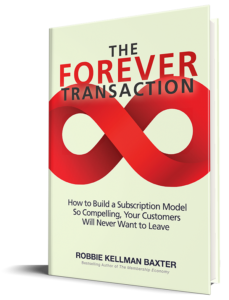About 4 years ago, the Office of Personnel Management wrote a paper on best practices in mentoring programs within the US Government. Many of the recommendations apply in other mentoring situations. They provided a good list of mentoring books. I added a few more (in italics) that are more current.
The Mentor Leader: Secrets to Building People & Teams that Win Consistently, by Tony Dungy, JIm Caldwell & Nathan Whitaker (2011) This book is written by a SuperBowl coach, and talks about how mentoring principles can be effective in a variety of situations throughout one's life.
Becoming an Effective Mentoring Leader: Proven Strategies for Building Excellence in Your Organization by William Rothwell and Peter Chee (2012) This book focuses on mentoring as a management tool within a larger organization
Power Mentoring: How Successful Mentors And Protégés Get The Most Out Of Their
Relationships, by Ellen Ensher and Susan Murphy (2005). This book provides the
fundamentals for mentors and protégés who want to create a connection or improve on
the mentor/protégé relationship. The book is filled with illustrative examples from the
most successful mentors and protégés.
Creating a Mentoring Culture: The Organization’s Guide, by Lois J. Zachary (2005).
This book provides organizations with the basics on setting up mentoring programs. The
book provides checklists, worksheets, and toolkits.
The Mentoring Advantage: Creating the Next Generation of Leaders, by Florence
Stone (2004). This book provides a general introduction to mentoring and its benefits to
those who are new to mentoring. This book also provides insight on the qualities to look
for in a mentor or protégé and discusses existing mentoring programs including IBM and
JP Morgan. You can also find useful checklists, worksheets, templates, assessment tools,
case studies, and tips to use in creating a mentoring program.
The Mentor’s Guide: Facilitating Effective Learning Relationships, by Lois J. Zachary
(2000). This book provides tools and tips for mentors and protégés to build and maintain
an effective mentoring relationship. Worksheets are provided to help mentors develop
their mentoring skills.
The Step-by-Step Guide to Starting an Effective Mentoring Program, by Norman H.
Cohen (2000). This book offers practical information for organizations that are looking to
start-up and operate mentoring programs.
The Mentoring Coordinator’s Guide, by Linda Phillips-Jones, Ph.D. (2003). This
guide includes detailed information on how to design, manage, and evaluate a program.
Guide topics include: Coordinator's View of Mentoring, Strategic Considerations,
Glossary of Mentoring Terms, The Formal Mentoring Process, Skills for Successful
Mentoring, Etiquette of Mentoring, Challenges in Planned Mentoring, Identifying Target
Groups and Needs, Finalizing Your Design, Communicating about the Mentoring
Initiative, Recruiting Participants, Selecting and Matching Mentors and Mentees, Role of
the Mentee's Immediate Manager, Developing Mentors and Mentees, Helping Mentees
Set Compelling Goals, Evaluating a Mentoring Initiative, and Special Topics in
Mentoring (enhanced informal mentoring, distance mentoring, mentoring groups, reverse
mentoring, and cross-difference mentoring).
The Keys to Mentoring Success, by Kathy Wentworth Drahosz (2004). This book
contains a step-by-step approach for establishing and running a mentoring program.
ASTD Handbook for Workplace Learning Professionals, edited by Elaine Biech00
(2008). This handbook contains best practices in the field of learning and development.
Topics included in the handbook are needs assessment and analysis, designing and
developing effective learning, and measuring and evaluating impact.


